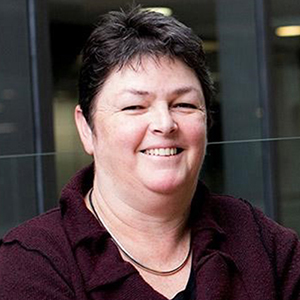Navigating Dementia Care: A Comprehensive Toolkit for Aged Care Workers
A guest blog by Prof Deborah Parker, ELDAC Chief Investigator, and Dr Holly Mack, ELDAC Senior Research Fellow, University of Technology Sydney (UTS)
In aged care, providing person-centred and quality care for individuals living with dementia is a complex, but essential undertaking. The ELDAC Dementia Toolkit has been designed to equip aged care staff with the necessary information and guidance to support palliative care and advance care planning for people living with dementia and their families.
Understanding Dementia
Dementia is an umbrella term used to describe a collection of symptoms that are caused by disorders affecting the brain. It impacts people’s thinking, behaviour, and daily tasks.[1] With approximately 83 people affected per 1,000 Australians aged 65 and over, it is a critical health and aged care concern. Shockingly, dementia ranks as the second leading cause of death in Australia, causing the deaths of 14,500 individuals in 2020, with an additional 25,700 people living with dementia at the time of death.[2]
Understanding all types of dementia is crucial, from the most common, to the lesser-known younger onset dementia that impacts individuals under the age of 65. Recognised as a terminal condition, dementia warrants the application of palliative care. This emphasises the ELDAC Dementia Toolkit's significance in providing comprehensive resources for aged care workers navigating the complexities of palliative care and advance care planning for people living with dementia.
Palliative Care Assessment and Management of Dementia
The toolkit's first component, Clinical Care, is structured around the ELDAC Care Model, featuring eight clinical care domains that provide actionable resources for individuals working across various care settings, including Residential Aged Care, Home Care, and Primary Care.
This section of the toolkit specifically focuses on the clinical assessment and management of issues that are important in caring and giving comfort for people with dementia. A range of resources are provided to assist in assessing palliative care needs, such as the Distress Observation Tool (DOT) and the Integrated Palliative Outcomes Scale for Dementia (IPOS-Dem), along with comprehensive pain assessment tools. There is information on best practice management and links to evidence-based tools, specifically for nutrition and hydration, delirium, and responsive behaviours. The toolkit also includes resources for communicating with families, such as engaging in conversations about advance care planning and giving emotional support during bereavement.
Education and Learning Resources
The second component of the Dementia Toolkit focuses on education and learning with a platform to support aged care worker learning needs, including an interactive tool to evaluate dementia knowledge. A Dementia Personal Learning Plan is available to assist in tailoring education to meet learning goals.
The toolkit has recommended dementia education opportunities across online training, experiential learning avenues, and useful resource links to foster continuous improvement in knowledge, skills, and confidence.
The ELDAC Dementia Toolkit emerges as an indispensable asset, bridging the gap for aged care workers seeking to enhance their understanding and skills in palliative care and advance care planning. By embracing this comprehensive resource, aged care workers can navigate the intricate terrain of dementia care, providing holistic support for people living with dementia and their families.
References
- Dementia Australia. About Dementia. 2022 [cited 18 November 2022]
- Australian Institute of Health and Welfare (AIHW). Dementia in Australia Web Report Population Health Impacts of Dementia. Canberra: AIHW, last updated 16 September 2022 [cited 18 November 2022].

Professor Deborah Parker
ELDAC Chief Investigator, University of Technology Sydney (UTS)

Dr Holly Mack
ELDAC Senior Research Fellow, University of Technology Sydney (UTS)